Graham Reid | | 3 min read
Taxman
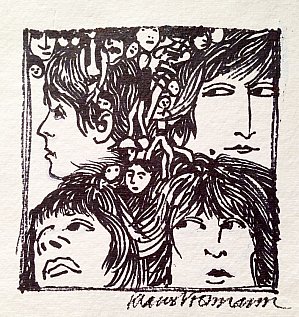
There will always be those who announce, “I don't like the Beatles”. But that's like saying, “I don't like America”.
Which America don't you like?
Which Beatles? The moptop Fab Four, the baroque Beatles of Sgt Pepper, the stripped-back songwriting experimentalists, the slick MOR band of the Abbey Road period . . .
As someone clever noted, saying you don't like the Beatles isn't an opinion, it's a position.
But let's say you didn't care for a single solitary note by the Beatles, you'd at least have to concede they weren't slackers who went a year or more between albums.
Consider this on the release of the remixed and expanded editions of their Revolver album of 1966.
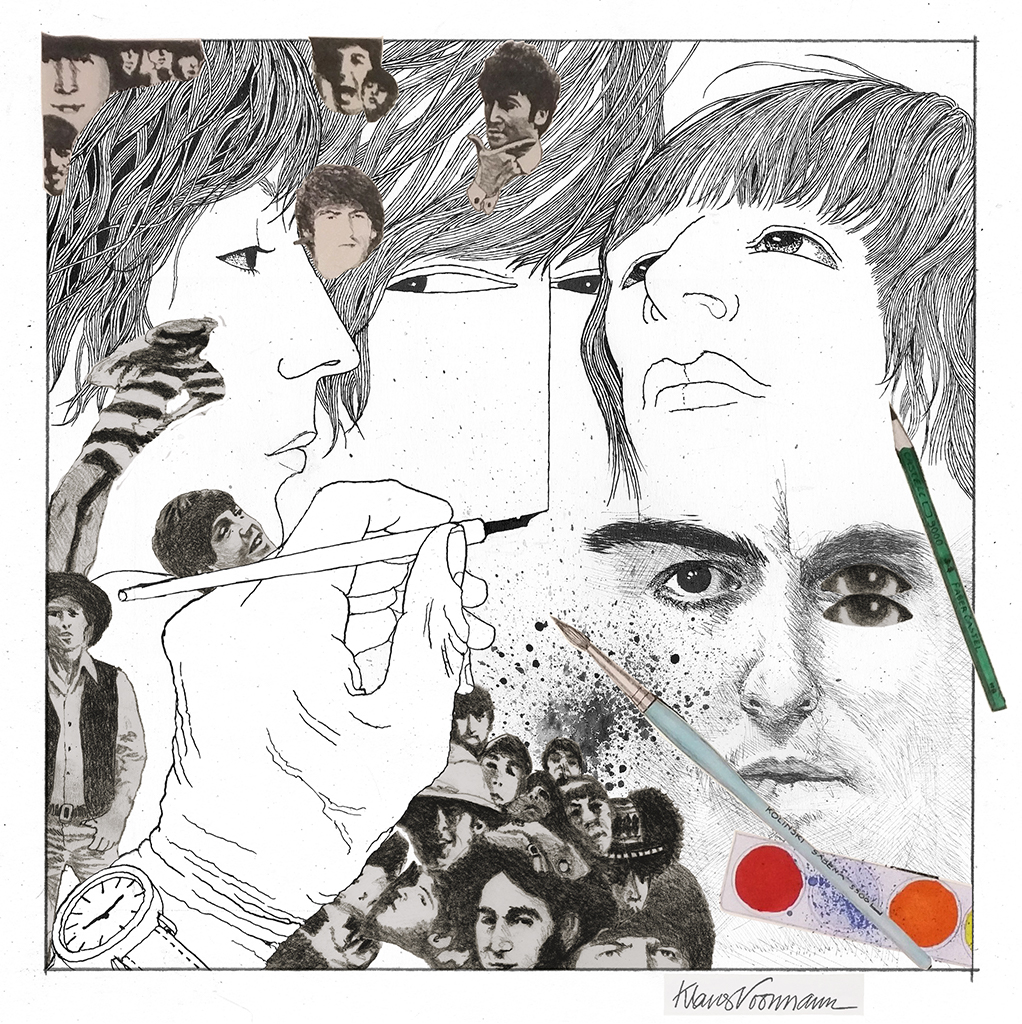 Between their first single Love Me Do at the end of 1962 and Revolver fewer than four years later, the Beatles released six albums (of mostly original songs), numerous singles and EPs with songs not on albums, made two films, did dozens of radio broadcasts and TV appearances . . .
Between their first single Love Me Do at the end of 1962 and Revolver fewer than four years later, the Beatles released six albums (of mostly original songs), numerous singles and EPs with songs not on albums, made two films, did dozens of radio broadcasts and TV appearances . . .
And toured.
The band which emerged with their own beat-driven spin on American rock'n'roll, country and R'nB now incorporated Dylanesque folk, Indian sounds, influences from classical music . . .
And George Harrison had emerged as a distinctive songwriter behind the increasingly different Lennon and McCartney.
Rubber Soul of 1965 prepared the ground (Lennon singing increasingly personal songs like In My Life and Nowhere Man) for whatever might come next.
It was as unexpected as it was brilliant: it was Revolver.
From the count-in and distinctive bass line of Harrison's opener Taxman (with a thrilling guitar solo by McCartney) through the string-enhanced melancholy of McCartney's Eleanor Rigby to Lennon's droning, philosophical Tomorrow Never Knows at the end with backward guitar, loops and samples, Revolver reset the compass of what was possible in popular music.
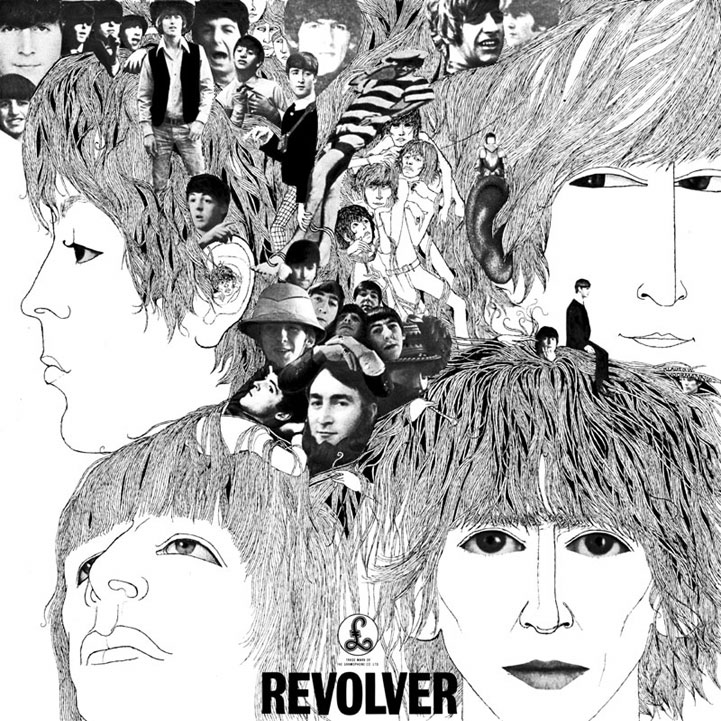 Here were McCartney's lovely For No One and Here There and Everywhere alongside Harrison's Love You To (which owes everything to Indian music and nothing to Western pop) and Lennon's world-weary I'm Only Sleeping and taut Doctor Robert.
Here were McCartney's lovely For No One and Here There and Everywhere alongside Harrison's Love You To (which owes everything to Indian music and nothing to Western pop) and Lennon's world-weary I'm Only Sleeping and taut Doctor Robert.
Yes, and Yellow Submarine.
Some would have preferred they ditch Ringo's obligatory number in favour of perhaps Paperback Writer or, better, Rain released just two months previous.
But Yellow Submarine showed their confidence: they could be serious but also playful enough to indulge in a children's song.
You'd never catch the Stones, U2, Coldplay or Radiohead going down that route.
The Beatles were at the top of their game and fun was part of the contract.
Here was an album which was quintessentially British: “Taxman Mr Wilson, taxman Mr Heath”; Eleanor Rigby perhaps prompted by the reaction to Lennon's comment about declining church attendances and the band being more popular than Jesus. But it was also shot through with influences from America, notably the Northern soul horns on Got To Get You Into My Life (McCartney's paean to marijuana as it turned out).
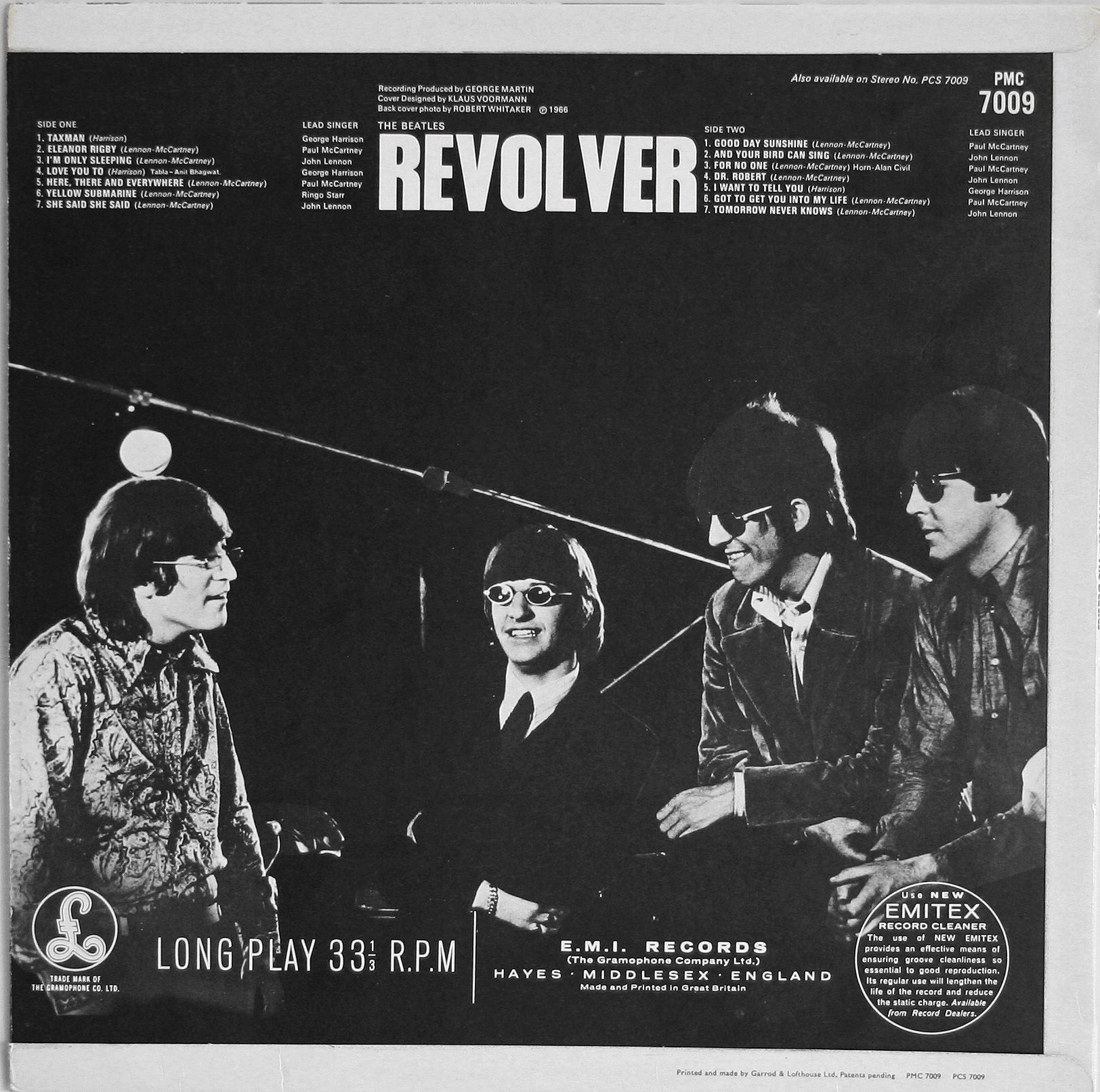 The count of love songs is way down – just a couple in fact – and now things were getting more personal (I'm Only Sleeping, Dr Robert), pastoral (Good Day Sunshine) and weirder (Tomorrow Never Knows). Eleanor Rigby: old people, loneliness and death. Hardly standard pop fare.
The count of love songs is way down – just a couple in fact – and now things were getting more personal (I'm Only Sleeping, Dr Robert), pastoral (Good Day Sunshine) and weirder (Tomorrow Never Knows). Eleanor Rigby: old people, loneliness and death. Hardly standard pop fare.
She Said, She Said: “I know what it's like to be dead”. Again, not a sentiment common in pop of the day, or even now.
And we should always remember that the Beatles were a pop band, as in popular.
Lennon would later dismiss And Your Bird Can Sing, but it's a snappy rocker with a hypnotic guitar part, archetypal Lennon-McCartney harmonies, a pounding bass . . . and it's all over in under two minutes.
They knew about pop economy. Revolver delivers 14 songs in 35 minutes. Eleanor Rigby delivers its story in a little over two minutes.
Even Tomorrow Never Knows is just three minutes although sounds like it lasts a lifetime.
If Rubber Soul was their turning point from moptop/Beatlemania into mature and sophisticated musicians, Revolver was a higher plateau which left most speechless.
In three years they'd gone from hand holding to telling you to turn off your mind.
They would make more elaborate albums (Sgt. Pepper's, Abbey Road) and more pared back ones (much of The Beatles and Let It Be).
But Revolver is their most assured and coherent. It is one of great rock albums which stands up even now.
And, like it or not, as long as there are five-year olds, Yellow Submarine will always have a receptive audience.
.
BEATLES FOR SALE. AGAIN
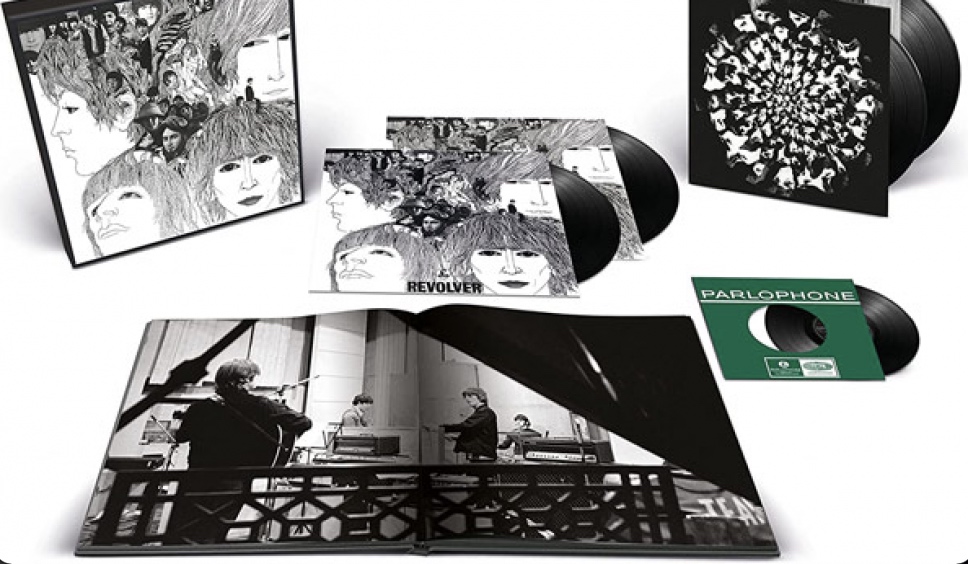 As with Sgt Pepper, The White Album, Abbey Road and Let It Be, Revolver has undergone remixing and appears now in many CD and LP configurations. Serious fans will look to the four LP + single EP edition of the original album and numerous demos and outtakes (with stereo and mono mixes of Rain and Paperback Writer).
As with Sgt Pepper, The White Album, Abbey Road and Let It Be, Revolver has undergone remixing and appears now in many CD and LP configurations. Serious fans will look to the four LP + single EP edition of the original album and numerous demos and outtakes (with stereo and mono mixes of Rain and Paperback Writer).
It comes with 100-page hardcover book, but no Blu-ray or download card. We will deal with that separately after its release on October 28.
Swipe your credit card, relax and float downstream . . .


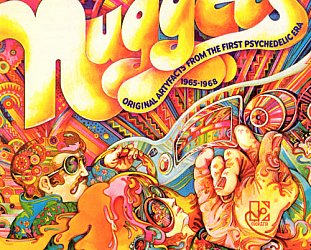


Patrick Smith - Oct 18, 2022
Great album. Bought it in Athens on journey ‘East’, 1966.
SavePhilip Spencer - Oct 28, 2022
What a brilliant summary of a brilliant album! Possibly the high water mark of guitar band pop music.
Savepost a comment